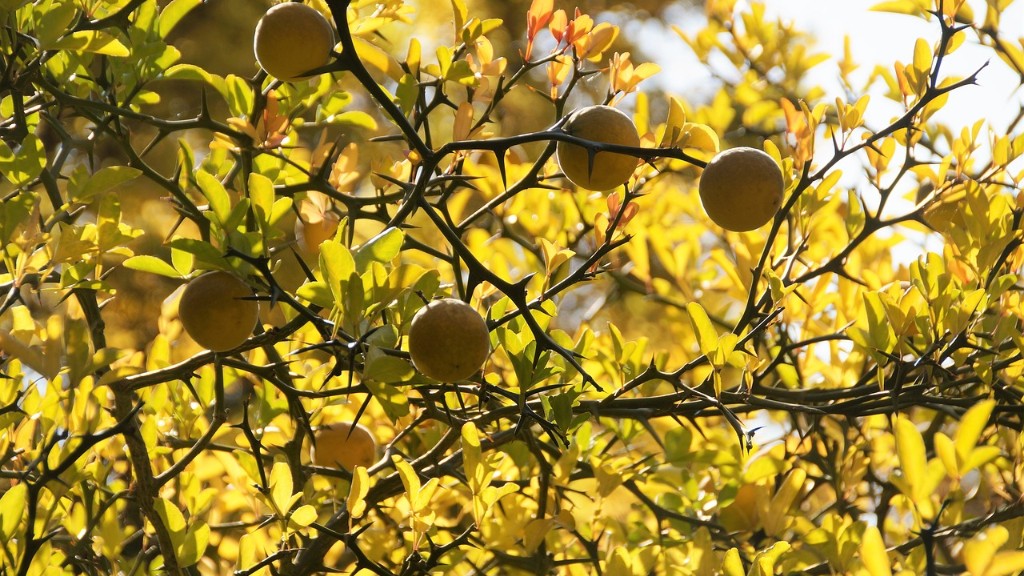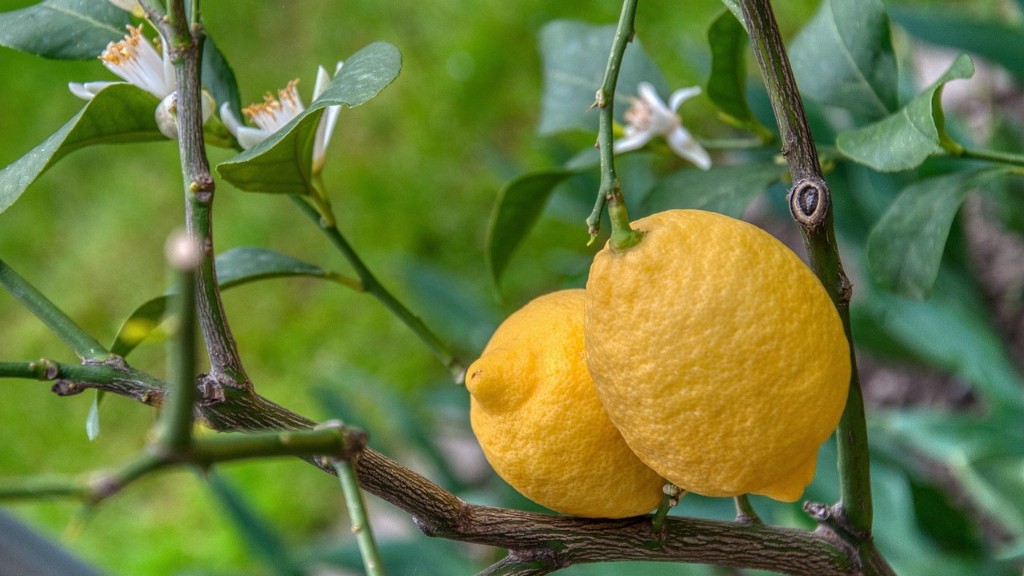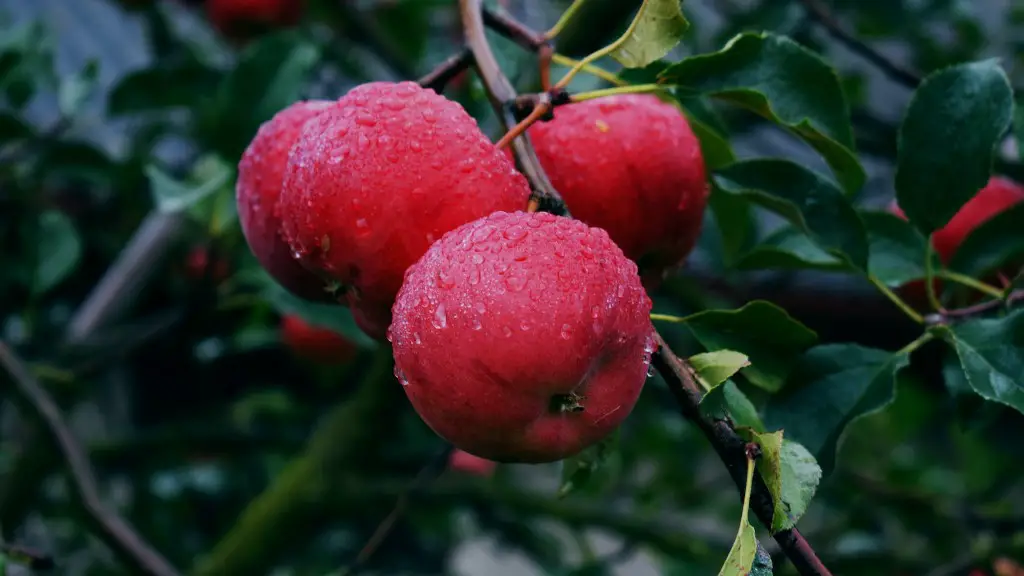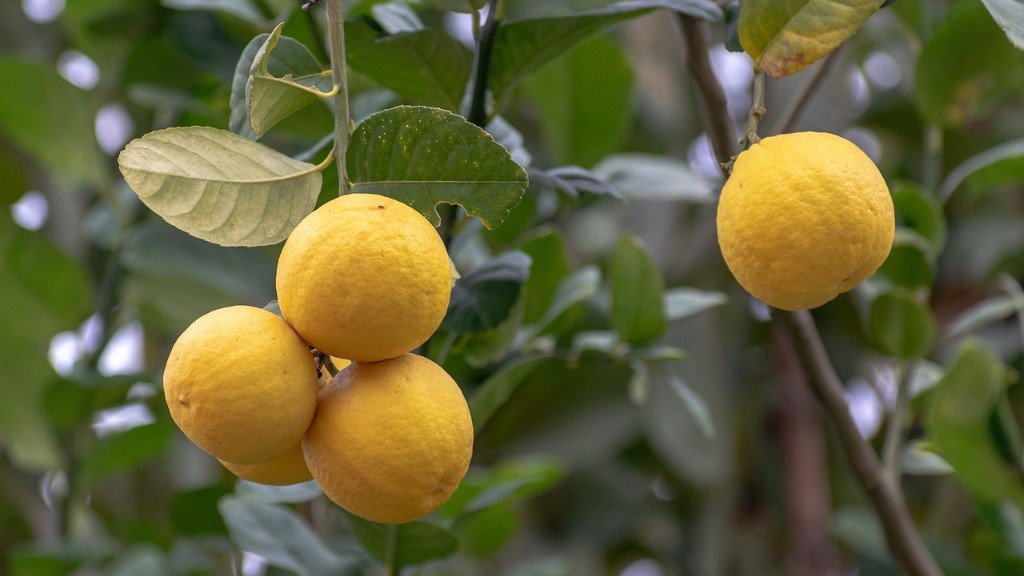Most gardeners, who want to grow a lemon tree, should understand the right way to feed the lemon tree so that it can thrive. With diligence, a bit of knowledge, and the right lemon tree fertilizer, anyone can grow a healthy lemon tree. Here are the basic steps for feeding a lemon tree to get the best yield of juicy, tart lemons.
To start, determine if your soil needs amendment. If your soil is too sandy or too clay-like, you’ll need to add organic material like compost. Adding organic matter will add valuable nutrients to the soil which helps the root system of the lemon tree to benefit, increasing the tree’s health.
Second, make sure the lemon tree is properly watered. Watering may seem like the easiest part, but it’s important to get just right. Irrigating too frequently can cause the soil to become soggy, and a soggy soil can cause root rot. Also, an occasional deep watering is better than regular shallow waterings since this helps to reach the deeper root system.
Third, prune regularly. Pruning helps to create a healthier lemon tree. Proper pruning and trimming of branches helps the lemon tree to focus energy on fruit production rather than growth. It also keeps the tree at the correct height and allows the plant to receive the needed sunlight for optimal growth. Also, check for pests and disease and use an appropriate product if needed. You can treat many common insect pests with simple products like neem or insecticidal soap.
Fourth, use a good lemon tree fertilizer. Fertilizers are necessary for lemon trees to grow properly. Good fertilizers help to stimulate fruit production and the overall growth of the tree. Look for products that contain plenty of nitrogen and trace elements specifically designed for citrus trees.
Finally, pay attention to your lemon tree while it’s fruiting. During this period, your lemon tree needs extra nutrients like potassium which helps to ripen the lemons. Additionally, foliar feeding with a liquid fertilizer is important – it’s a good way to deliver extra nutrition to the leaves.
Soil amendments
In order to produce maximum yields of high-quality lemons, soil amendments may be necessary. Amendments such as compost, manure, or other organic material can help to improve the structure of soils, making it easier for the root system of the lemon tree to benefit. Additionally, synthetic soil amendments such as calcium or magnesium can also be beneficial, providing extra nutrition to the lemon tree.
Adding lime to the soil is very beneficial for lemon trees, as it helps to raise the pH level to the right range. This range helps to stimulate the growth and production of lemons. So, it is important to monitor the soil pH levels of the lemon tree in order to ensure the ideal conditions for its growth and production.
Additionally, applying organic materials like seaweed or fish can help to provide vital nutrients to the soil. Seaweed contains minerals, vitamins, and microorganisms which aid in enhancing the soil. Fish is a source of nitrogen, which helps to increase the nitrogen content in the soil, allowing for deeper and healthier root systems.
Watering
Watering a lemon tree correctly is essential in order to ensure a good yield of lemons. Lemon trees need to be watered regularly and deeply to ensure the roots are properly absorbed. However, it is also important not to over-water the soil, as this can lead to root rot and other related problems. Additionally, soil-testing in order to measure the moisture content of the soil is recommended in order to avoid over-watering.
It is also important to ensure that the water is free of contaminants and pathogens, as they can adversely affect the health of the tree. Additionally, good drainage is essential in order to avoid standing water in the soil which can also lead to root rot. Therefore, adding mulch or other organic materials to the soil can help to minimize evaporation and aid in maintaining a healthy root system.
Pay attention to the weather in your area when watering your lemon tree. During extremely hot weather, additional water may be necessary in order to keep the tree from wilting due to dehydration. Also, be sure to water the tree evenly and to not over-water any one spot.
Pruning
Pruning is a vital part of taking care of a lemon tree to ensure a healthy crop of lemons. Regular pruning helps to keep the lemon tree in a compact shape, making it easier to harvest. Pruning also helps to increase the amount of light, air, and nutrients the tree receives. Additionally, pruning also helps to get rid of disease or insect infestations, as they can be spread to other areas of the tree.
The best time to prune a lemon tree is during late winter or early spring when the tree is dormant. During this time, select branches that are not producing fruit and cut them back so that the remaining branches can receive the optimal amount of light and nutrients. Additionally, it is important to clean off dead branches, which are not producing, as they can harbor pests.
It is also important to pay attention to how you prune the lemon tree. The most important aspect of pruning a lemon tree is to ensure that it maintains its natural appearance. Do not cut too deeply or leave sharp edges, as this can damage the tree. Instead, use a small hand pruner to carefully remove the unwanted branches of the tree.
Fertilizing
Fertilizing your lemon tree can help to promote growth and flavor production. Proper fertilizer application can increase the yield of lemons and also help to keep the roots healthy and strong. Lemon trees need nitrogen, potassium, and phosphorus amongst other nutrients in order to thrive. Nitrogen helps to promote healthy growth, phosphorus helps to promote bulb and flowering, and potassium helps to promote fruit growth.
Lemon trees should also receive trace elements such as manganese, zinc, iron, and boron in addition to the primary nutrients needed for growth. These trace elements help to promote growth and also protect the tree from disease and pest infestations. Additionally, organic fertilizers can be used in order to provide an additional boost of nutrients to the soil.
It is important to fertilize in the right amount. Too much fertilizing can result in an over-production of foliage with little fruit yield. To avoid this, keep track of the soil nutrients and make sure to follow the instructions on the side of the fertilizer bag when applying. Additionally, use a soil-testing kit to measure the pH levels and make any necessary corrections.
Foliar Feeding
Foliar feeding is an important part of caring for a lemon tree. This process helps to deliver vital nutrients to the leaves, ensuring that the leaves remain healthy and green. Foliar feeding also helps to increase the tree’s resistance to pests and diseases. Additionally, it helps to promote healthy growth and can result in larger, juicier lemons.
Foliar feeding can be done with a liquid fertilizer or a solution of compost tea. Both of these are great sources of nutrition for the tree. Additionally, if you are using an organic fertilizer, make sure that it is safe for the environment and does not contain any toxic chemicals. Additionally, it is important to use the proper application techniques and avoid over-applying the fertilizer.
It is important to limit foliar feeding to once or twice a year. If done too frequently, the nutrients can actually cause harm to the tree. Additionally, it is important to use a fertilizer with the right balance of macro- and micronutrients as too much of one can lead to nutrient deficiencies in the tree.



